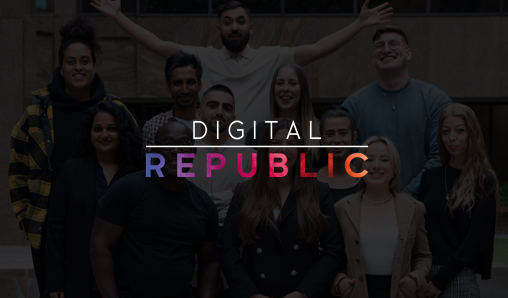
How to land your next role
If you want to secure your dream role at a top company, you need to understand what employers look for and how you can stand out.
Knowing how to pitch yourself and how to showcase how you fit what they’re looking for is key as competition for the best talent in the market continues to increase.
With managing your current workload and dealing with life outside of work, it can be a real challenge to find time to effectively job search and take the right steps during the interview process. It takes real effort.
So, in an effort to help you overcome the challenges you’ll face, we’ve complied our tips to improve how you search for jobs, create a more effective CV and nail those interviews every time.
Start searching proactively
Ever noticed people securing roles that you hadn’t seen an advert for? This is because over 70% of roles available in the market are not advertised.
This is why just relying on applications to jobs that have been posted isn’t enough; you need to be a proactive job seeker.
LinkedIn is a great place to start. You should make sure your profile contains detailed information about your work history and is aligned with your current CV.
Also, grow your network, engage with people’s posts and start growing your brand online. This will lead to greater visibility of your own content and profile on people’s homepages and in their LinkedIn searches.
You should also reach out to recruiters and get them working for you. They’ll be in constant communication with companies, will have access to the best opportunities and can work the job market on your behalf.
Make your CV work for you
Your CV has one role, and that’s to get you an interview.
To achieve this, make sure you’re highlighting the experience that’s relevant to the job you’re currently applying for and try and avoid certain common mistake.
Separate your achievements from responsibilities
Is your CV easily digestible? If not, you need to change this.
Separating your job achievements from your responsibilities will allow you to create a strong narrative and demonstrate that you’re the perfect person for the role in a way that’s clear and easy to follow.
Listing your achievements are a great way of highlighting your main strengths, which is arguably the most important thing to consider when applying for a new position.
You’ll also be demonstrating the impact that you’ve made in previous roles, something that hiring managers love to see.
Make things obvious
People often assume the person reading their CV has the same skillset as them and while this is possible, it’s not always the case.
It’s important to look at the job description and make sure the key skills that they’re asking for are in your CV. By assuming the hiring manager understands your skills you could be missing out.
Tell a story through each role
It’s easy to fall into the trap of simply listing numerous responsibilities from a previous role. However, it’s important to choose a few of your key responsibilities and use them as an opportunity to tell a story and create a narrative to help engage the reader in a concise way.
Nailing your Interview
Research more thoroughly
Recruiters want to hire someone with a high level of curiosity, so go further than simply reading the company ‘About Us’ page.
Search for them in the news/industry publications, research the team’s background through their LinkedIn profiles and look at the sort of content they’re putting out on social media to get a better feel for who they are as a business.
Doing this will also help you with considering better questions to ask throughout the interview as you’ll have a wider range of information to question or want to discover more about.
How to answer questions in an interview
When answering behavioural questions, the STAR framework helps to create a strong narrative and prevents you from going off-topic and not answering clearly and concisely.
Situation – Set the scene and try and be as specific as you can – when did this take place? What was your role? Who else was involved?
Task – What was the problem? What was your responsibility?
Action – What steps did YOU take? Focus on your contribution to the situation, not your teams. Use ‘I’ as much as possible instead of ‘we’.
Result – What were the outcomes of your actions? Be as specific as you can and if you have numbers or stats to back it up, even better.
Ask well thought out questions
This comes back to your research. If you can ask questions that are well thought out and considered, rather than generic ones then it’s going to really resonate with the interviewers.
You’ll no doubt have your own questions, but ones we believe to be good include:
What does success look like? How is this measured?
Why did you join/why have you stayed?
What are the progression opportunities?
What’s expected of the person taking this role?
What are the company’s plans for the next 3-5 years?

